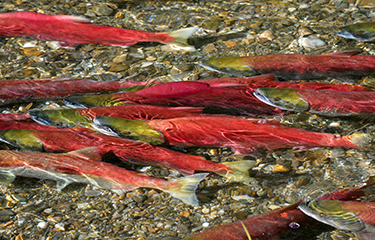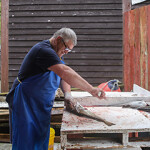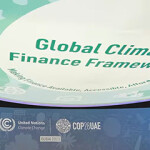Canada boosts funding for wild salmon preservation

The federal government of Canada and the provincial government of British Columbia are pumping some CAD 4 million (USD 3.1 million, EUR 2.5 million) into a handful of different projects to combat declining wild salmon populations.
Canada announced last week the funds from the British Columbia Salmon Restoration and Innovation Fund (BCSRIF) will go to four different salmon restoration projects in B.C., and will serve to help a number of different species, including sockeye and chinook salmon.
Fin Donnelly, B.C.’s parliamentary secretary for fisheries and aquaculture, said declining salmon populations call for collaborations across several different groups.
"Wild salmon are on the decline and it's going to take all of us working together to conserve, protect and rebuild this culturally and ecologically important species. We need to listen to the voices on the front lines including, First Nations, fishers, stream-keepers, researchers, and others if we are to restore salmon populations. By funding projects through the B.C. Salmon Restoration and Innovation Fund that focus on innovation, infrastructure and scientific partnerships, we're giving wild salmon every chance to survive in B.C. waters for generations to come,” Donnelly said.
BCSRIF funds 42 projects that have received CAD 71 million (USD 56 million, EUR 46 million) in funding to help wild salmon and the regional seafood sector in general. The projects receiving the latest round of funding include mudslide restoration work to help sockeye, steelhead, and rainbow trout, as well as upgrades to a salmon hatchery, among other things. One project will work closely with the Osoyoos Indian Band in an “innovative combination of traditional knowledge and science towards sustainable fisheries co-management,” according to a press release from Fisheries and Oceans Canada.
The funds are also aimed at developing a science-based plan to take on climate change and help Pacific wild salmon weather changing conditions.
"Our Pacific wild salmon are facing unprecedented pressures due to climate change and the increasing demand for fish and seafood products. The Canadian and British Columbian governments are firmly committed to protecting and restoring this iconic species of our west coast. The BCSRIF program allows us to support hardworking teams on the ground that are leading incredible efforts toward this common goal,” Bernadette Jordan, the minister of fisheries, oceans and the Canadian Coast Guard, said.
Gillnet, seine, and troll salmon fisheries around B.C. have been on the decline. The Fraser River sockeye run, historically the province’s largest salmon fishery, has seen runs of over 20 million fish in the past, but had a return of just 288,000 fish last season, according to CBC.
Photo courtesy of Birdiegal/Shutterstock





Share